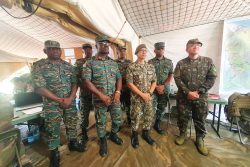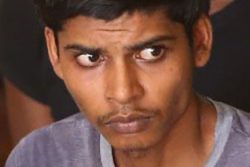To the disappointment of many in Colombia, the archive of its most famous literary son, the Nobel laureate, Gabriel García Márquez, has been acquired by the University of Texas at Austin. That the opus of one of Latin America’s most celebrated writers and public intellectuals and at times outspoken critic of US policy in the region should go to an American institution is not without a certain irony. Nevertheless, The University of Texas is known for its focus on Latin America and has the technical expertise to take good care of the late author’s papers. It may also be of some consolation to Colombians and other Latin Americans that the university plans to digitise part of the collection to make it more accessible.
Quite coincidentally, the University of the West Indies at St Augustine last week received the collected papers of Ian McDonald, whose induction as a Distinguished Friend of Mr Biswas, for his contribution to Caribbean letters, at a ceremony last Friday was announced, in an article in the Trinidad Guardian, on November 23, by UWI Professor Emeritus Kenneth Ramchand.
It is a pity that Mr McDonald’s papers could not remain in Guyana, so much has he contributed to our literary and cultural landscape and so lovingly has he written of this beautiful but frustrating country, where he has lived since 1955. Unfortunately, we just do not have the archival facilities to house properly such a collection.
It was fitting though that Mr McDonald – hailed by Prof Ramchand as a “Caribbean man” and described by David de Caires, his close friend and the late founder of Stabroek News, as “Antiguan by ancestry, Trinidadian by birth, Guyanese by adoption and West Indian by conviction” – should have handed over his papers to UWI-St Augustine. He was born in 1933 but a stone’s throw from the campus and, in finding a home for his life’s work there, he has come full circle. And he is in distinguished company, with the St Augustine Library’s West Indiana and Special Collections Division including collections drawn from the papers of William Demas, CLR James, Earl Lovelace, Samuel Selvon, Derek Walcott and Eric Williams.
Now, in Guyana and the English-speaking Caribbean, we do not seem to have as strong a tradition of public intellectualism as in Latin America. Here, this may be partly attributable to a political culture that has for too long fomented polarisation and discouraged independent thinking. But it is perhaps fair to say that, among the small number of men and women who stand out for the clarity of their thinking, Ian McDonald ranks highly.
Mr McDonald has been, since 2009, Chairman of Guyana Publications Inc, publishers of Stabroek News, and has been writing the weekly column, ‘Ian on Sunday,’ since 1990. But Mr McDonald’s prolific output, showing no deceleration with age, goes far beyond his association with this newspaper.
His writings have encompassed life and its enjoyment, love and, more recently, a serene contemplation of ageing and death. He has drawn from a life well lived and eloquently shared his thoughts, tinged with a certain Romanticism, on globalisation, sugar, sport (particularly cricket), literature, history, culture, Guyana and the West Indies, not necessarily in that order. And even when he ventures into social and political issues, he does so with straightforward commonsense and philosophical equanimity, elegantly avoiding the pitfalls of polemic and the temptation to come across as a grumpy old man. In his article, Prof Ramchand calls Mr McDonald’s poetry “syntactically uncomplicated” and describes it as “enriched by pockets of fine description, humour and moving lyricism.” This might be equally applied to his prose, with which most readers are more familiar.
In the absence of further information from St Augustine, we expect that, in addition to literary manuscripts, Mr McDonald’s donated papers would include correspondence and other memorabilia culled over a lifetime of intellectual inquiry, in addition to material relating to his association with AJ Seymour and the literary magazine Kyk-over-al; we can only guess at what riches lie waiting to be discovered by scholars and researchers, seeking to make sense of the Guyanese and West Indian condition.
When Ian McDonald came to Guyana in 1955 to work in the sugar industry, he probably could not have foreseen that he would stay for so long, falling in love with this country, its people and his wife, Mary. We should be thankful that he has cast his poet’s eye, infused by his keen sense of history, over us all. Like a latter day Ralegh, espying mythical El Dorado, he has given us, especially in his poetry, elegiac glimpses of this country’s true beauty, essence and huge, still untapped, potential. It says much of the man that he has maintained his optimism over decades of disillusion and unfulfilled promise. That he keeps writing is proof enough of this.
Ian McDonald received the Golden Arrow of Achievement in 1986 but, in a country not now known for honouring its heroes, this is perhaps not enough. Still, as long as he is recognised as a Guyanese and West Indian treasure, as UWI has done, that is honour enough.









